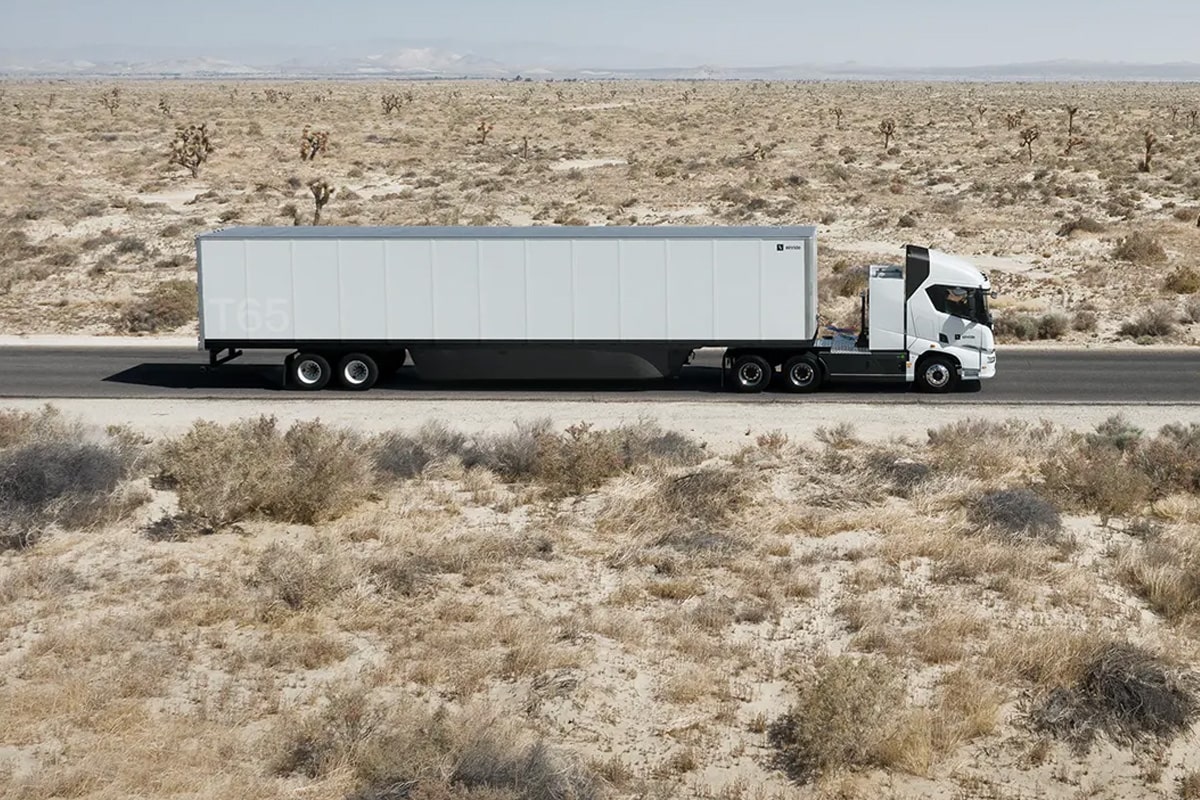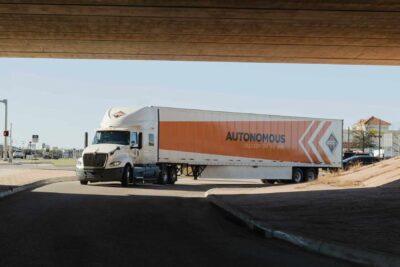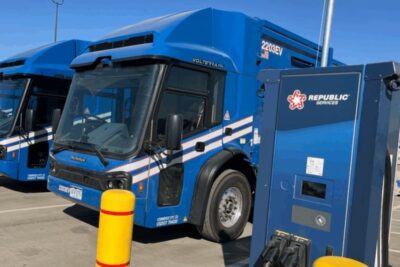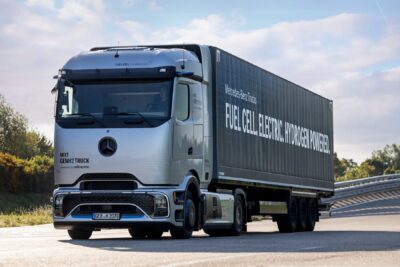
Electric freight pact unravels: Einride takes Maersk to court
Swedish electric-truck specialist Einride has initiated legal action against dänish logistics company A.P. Moller–Maersk over an abandoned agreement to deploy 300 battery-electric heavy-duty trucks in the US. The lawsuit, filed already in November 2024, was first reported by Danish outlet Børsen and then the Wall Street Journal.
The partnership between Maersk and Einride, announced in 2022, was presented as “one of the biggest deals ever made to make transportation sustainable.” According to the agreement, Einride would have provided Maersk with 300 battery-electric trucks between 2023 and 2025. Moreover, the logistics company was to get access to 150 charging stations and connectivity services linked to Einride’s Saga operating system.
However, things apparently did not go as planned. In heavily redacted filings with the Los Angeles County Superior Court, which the Wall Street Journal had access to, Einride alleges that Maersk and its US affiliates withdrew from the agreement “after not being able to live up to their own sales targets for electric capacity.” Einride states that it had committed to vehicle orders, charging infrastructure and nationwide recruitment on the basis of Maersk’s programme schedule for the US states of California, Illinois and New Jersey.
Maersk tells a slightly different story. According to the Danish company, it was Einride that did not honour the contract and that failed to deliver the trucks. The US news outlet quotes a Maersk representative, responding to the lawsuit, as saying that his company “had no choice but to terminate our contract with Einride in November 2024 due to their failure to deliver additional electric vehicles already ordered and also their failure to pay their vendors at the time.” Apparently, Maersk declined to comment further due to the ongoing litigation.
Einride rejected this account. A spokesperson said: “We don’t agree with Maersk’s characterization of the circumstances and that is partly why we initiated legal action against Maersk.”
Einride, founded in 2016 and preparing for a potential public listing, argues that the abrupt shift left it exposed after committing to procurement and workforce expansion. The legal dispute involves claims for damages and payment of fees Einride says that are owed under the agreement.
Did Maersk try to change the terms of the deal?
The case exposes the commercial strain around scaling zero-emission freight fleets in the US. Both companies had positioned the 300-vehicle project—and its associated 150 charging stations—as a central step in Maersk’s longer-term plan to reach net-zero greenhouse-gas emissions by 2040.
The trucks were to be used by Maersk’s North American warehousing, distribution and transportation business called Performance Team – A Maersk Company. “Today’s order is an important step in building our end-to-end, landside decarbonisation foundation while also addressing customers inland transportation pain points,” Maersk CEO Vincent Clerc commented on the order at the time.
However, Einride’s lawsuit states that in autumn 2024, Maersk began reassessing its US electric operations. According to the filing, and the Wall Street Journal, the shift was communicated in an email dated 16 October 2024, in which Maersk told Einride it could not “see a way forward where we can both run a sustainable business as partners under the current construct—considering external market conditions and given the current situation.” The documents also claim that during a meeting in Copenhagen in early November, Maersk warned it would exit the agreements unless Einride agreed to “hefty discounts.”
Uncertainty hinders large-scale electrification
Industry-wide, US adoption of battery-electric heavy trucks has faced headwinds. Operators cite high upfront vehicle and infrastructure costs, alongside limited willingness among shippers to pay premiums for low- or zero-emission services.
Moreover, there are political setbacks that undermine the electrification of truck fleets in the US. Let’s take California as an example. The Golden State had been at the forefront of pushing for more zero-emission semi-trucks, putting in place legislation called Advanced Clean Trucks, or ACT, in 2021. That was followed by Advanced Clean Fleets, or ACF, which mandated that public and private fleets would only be allowed to purchase zero-emission vehicles by 2036.
However, the state needed a waiver from the US Environmental Protection Agency (EPA) to adopt ACT and ACF. It received the green light for the former, but not yet the latter. And after US President Donald Trump took office, the EPA even revoked the waiver, meaning the state could no longer enforce zero-emission rules for large trucks. All this back and forth makes it hard for companies to plan while keeping a close eye on their bottom line.
The outcome of the lawsuit will likely be followed closely by logistics operators and technology suppliers as large-scale zero-emission freight projects remain central to meeting corporate climate targets but continue to face economic, regulatory and operational complexity.




0 Comments